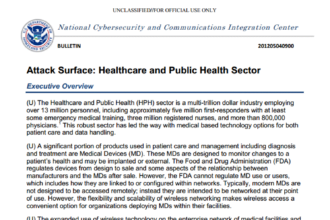A lot of changes have been made in a lot of arenas since the COVID-19 pandemic struck, and the healthcare industry was certainly not exempt. Online doctor’s appointments became the norm, and was a pretty successful means of providing healthcare. As a silver lining to the coronavirus, the future of telehealth looks bright. Another promising change in the healthcare industry is that of ambulatory surgery centers, and here is a closer look.
What is an ASC?
Ambulatory surgery centers provide outpatient care to those in need, without having to actually check in and wait at big hospitals. As ambulances, themselves, are well-equipped with life saving items, think of an ASC as a brick-and-mortar extension of an ambulance, with a much bigger supply shed. With patient convenience in mind, ASC’s provide alternatives to hospitals for outpatient procedures, and they are well-received by patients and caregivers alike on both convenience, and more importantly successful healthcare. ASC’s aim to shorten patient wait times on surgeries from weeks or months, to the day of an incident. The word “ambulance” itself stems from the French term “hopital ambulant” which means horse-drawn-hospital, and after first exchanging the horse for an engine, ASC’s aim to fulfil immediate needs of patients who arrived at the facility in an ambulance.
History
To better understand why ASCs are the future of ambulatory care, here is a brief history of their past. The first was created more than 50 years ago in Phoenix, and now more than 5,000 are certified by Medicare (meaning they get government money when the conduct a lot of different procedures). The major reasons for the first ASC’s creation were limited space in hospitals, limited supplies, scheduling delays, and budget issues. In the last decade, the most “popular” procedures formed at ASCs have been cataract surgery, biopsies, colonoscopies, and endoscopy.
Why the Future is Bright with ASCs
It’s no surprise that the almighty dollar is a driving force in U.S. healthcare, and ASC procedure costs are generally 60% or less than what the same procedure would cost in a large hospital, due to tighter scheduling, multiple nurses, the grand scale of most hospital operations, and other factors. Medicare, itself (a.k.a. the government), would stand to save two-and-a-half billion dollars in treatment reimbursement if half of the procedures performed at hospitals were performed at accredited ASCs. When the government is saving billions due to your business model, you can bet you’re future is bright. Patients also tend to save some serious money when utilizing ASC services, so three cheers for patient, hospital, and Uncle Sam all saving some money. It’s not all monetary, though, and a large portion of patients do, indeed, rate their care at these less-impending surgery centers higher than those who attend large hospitals for outpatient care. The main reasons being decreased wait time and increased personalization, both sensible given the size difference (generally ASCs have about 4 operating rooms). Quality-of-care is rated higher by both patients and surgeons, and surgeons often credit this to the more ergonomic designs their facilities are created with that cater to streamlined surgical service. A lot of hospitals haven’t even had a major upgrade since the first ASCs started popping up half a century ago.
The Future is Now
With payers, providers, and patients all onboard with the convenience, cost-effectiveness, and quality of care that ASCs provide, the growing population will just add to the necessity of alternative sites of care, like ASCs. As healthcare legislation continues to favor more coverage for more people, the need will only continue to grow. By the year 2025, outpatient surgical procedures are expected to increase by 45%, and with literal billions of dollars being saved with ASC use, you can bet big that they will continue to pop up in great frequency.









